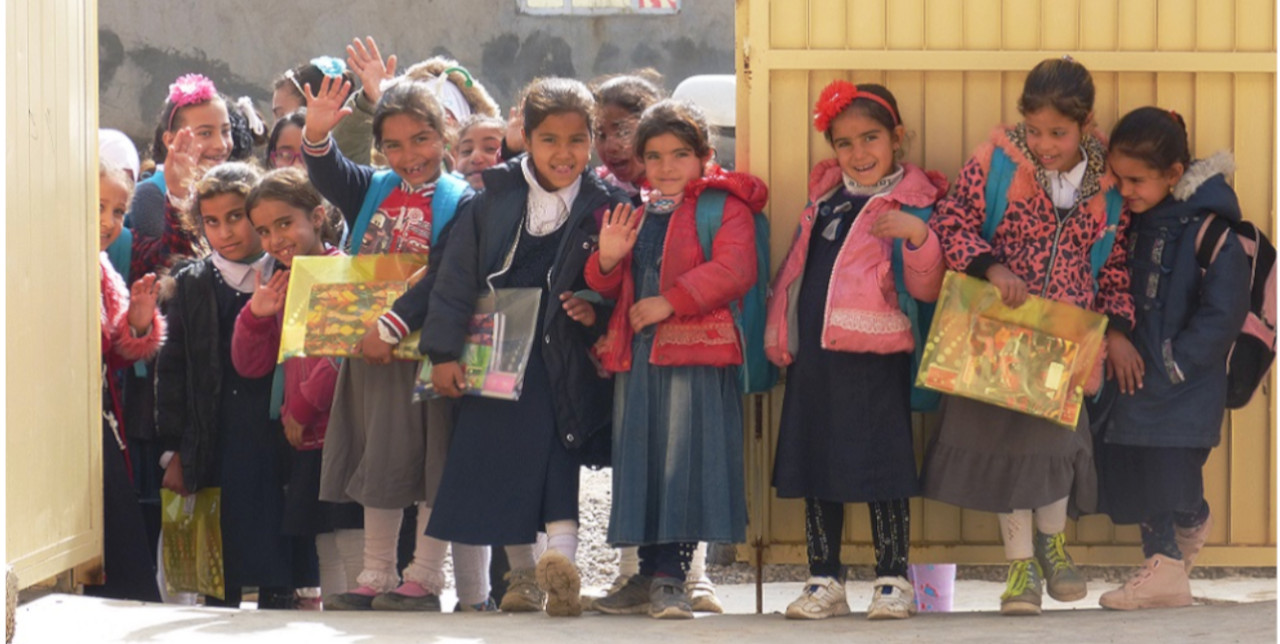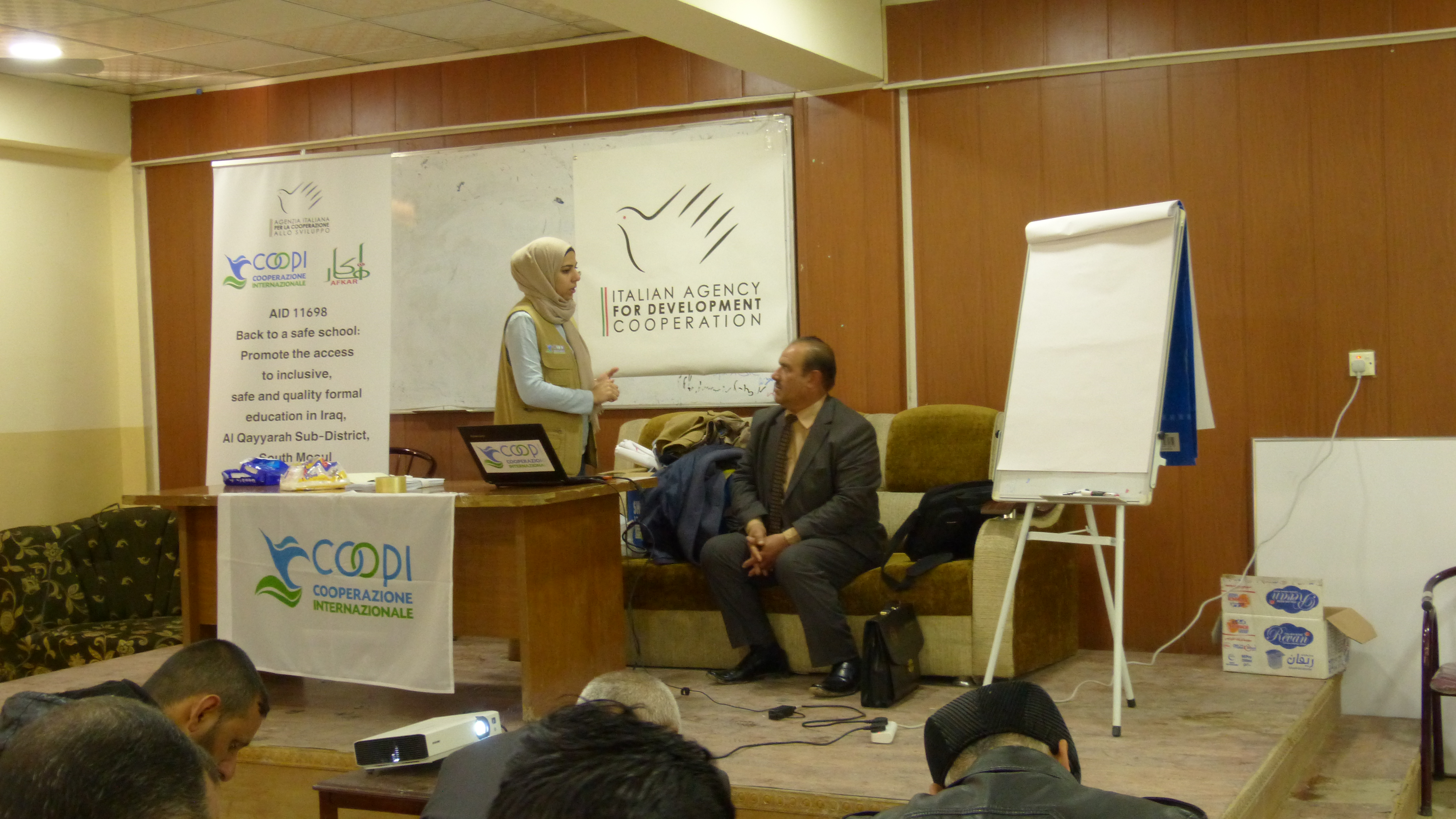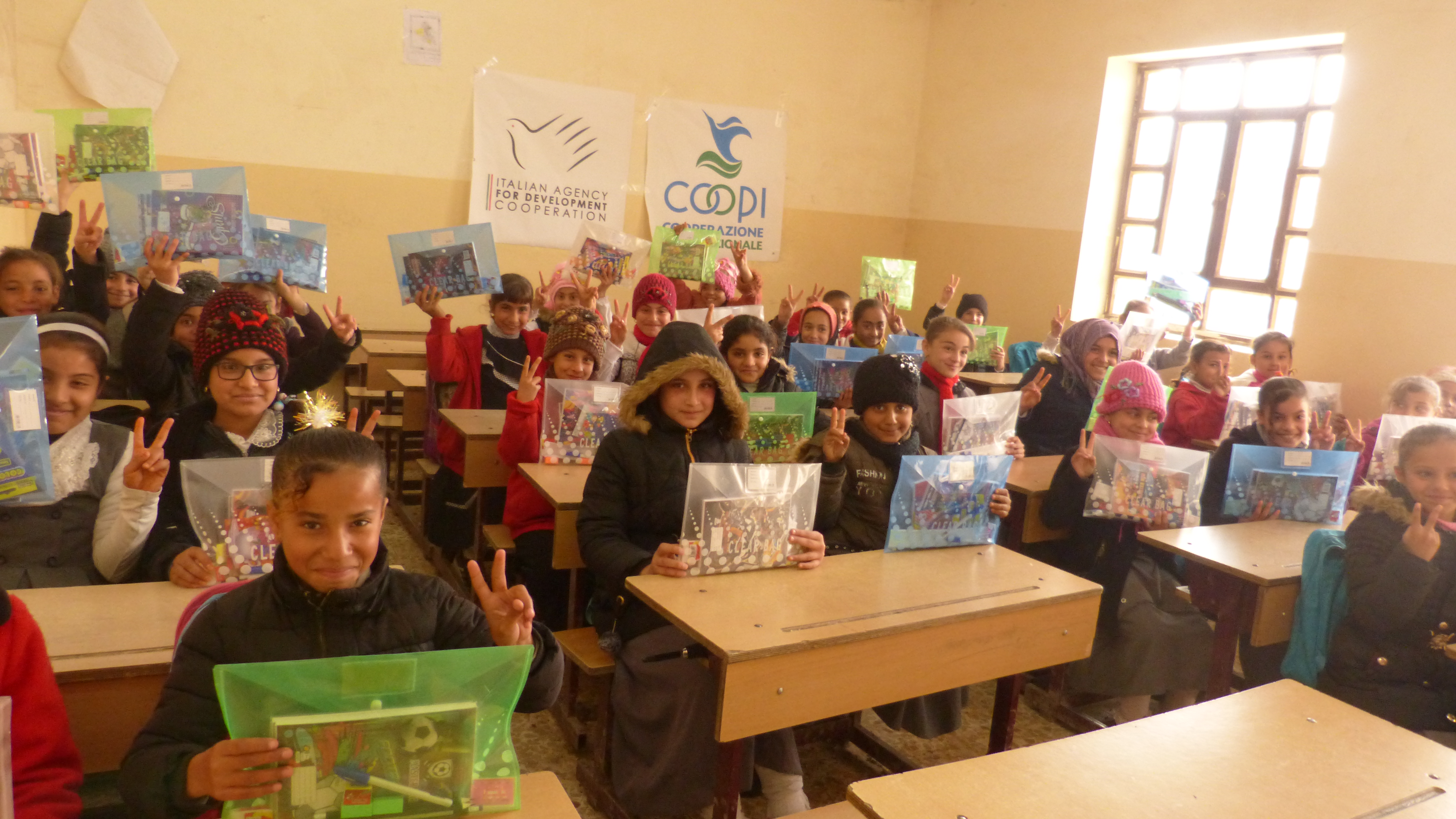27-02-2020 | di COOPI
Iraq. Despite the tensions, our work for Al Qayyarah youth continues.
Since October 2019, the beginning of the popular demonstrations against the political establishment and the following escalation of tensions between US and Iran, have caused numerous obstacles to the implementation of the humanitarian assistance’s activities in Iraq. Indeed, since December 2019, the access to the intervention areas has been blocked to the expatriate staff. Up to today, the situation has not changed yet.
Nevertheless, despite the difficulties, COOPI has continued its efforts on behalf the al-Qayyarah communities. During the first week of February, we carried out 6 days of training addressing the teachers of the benefitting school: 114 teachers attended frontal lectures and workshops on the proper running of teaching activities and on child protection issues, such as gender inclusivity and the afford of psycho-social disorders. Moreover, during the third week of the month, we managed 5 days of toolkits distribution in the 13 schools included in the project. The toolkit contained school and leisure items suitable for elementary and middle school’s students as well as for teachers and administrative personnel. At the same time, we begun to install the prefabricated buildings that will constitute the new Ain Marmia, Al Makuk and Al Khabata schools. The schools should be completed in April, allowing students to take advantage of the new spaces already from the current school year.
Training session
These activities are included in the project “Back to a safe school - Promoting access to inclusive, safe and quality formal education in Iraq, Al Qayyarah sub-district, south of Mosul”, that COOPI has started in October 2019. The project funded by the Italian Agency for Development Cooperation (AICS) aims to give a follow-up to the success of the previous interventions on education in emergency and child protection that COOPI carried out in the Mosul district between 2017 and 2019. Moreover, it aims to extend support to an additional 4,000 students from 13 schools in the al-Qayyarah sub-district.
Distribution of didactive kits
The intervention foresees the requalification and the expansion of school environments through the installation of 30 prefabricated classrooms and 20 toilets for students, teachers and administrative staff of the target schools; the distribution of didactive and recreational kits as well as of individual hygiene kits for the most vulnerable students; the support for the quality of teaching through the engagement of 47 support teachers and the training on education and protection issues. In addition, the project will support those children, identified as exposed to psycho-social vulnerabilities, through a pedagogical consultant and finally, it will implement an after-school recreation activity and an awareness campaign for students attending the surroundings villages.




 Iraq
Iraq

